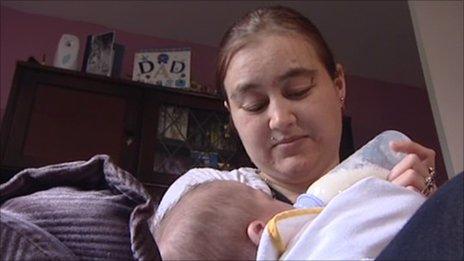'Infertile' Stourbridge renal patient has healthy baby
- Published
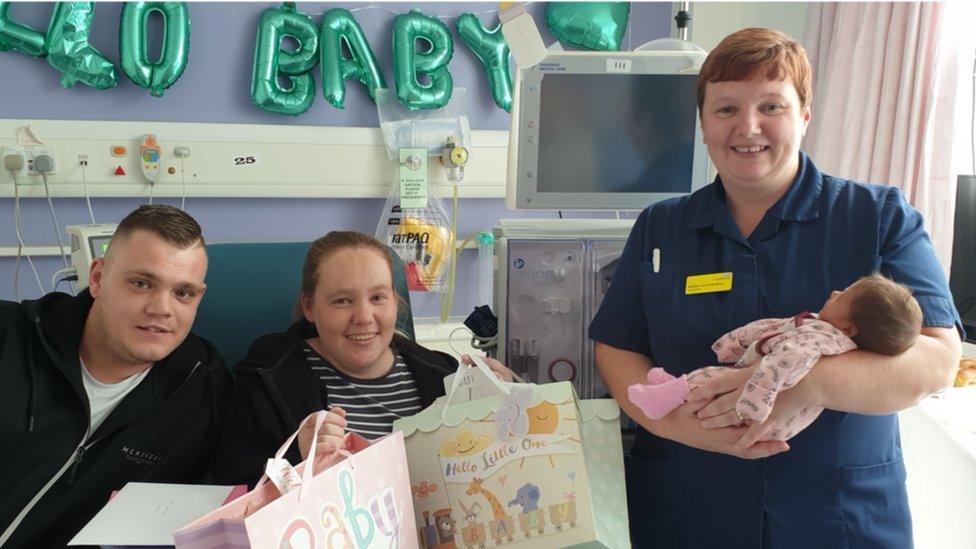
Ellie, pictured with partner Dan Taylor and nurse Bobbie Bedford, said her pregnancy was "a shock"
A woman with kidney disease who was told she could never have children has given birth to a "miracle" baby girl.
Ellie Pierce-Oliver, 28, from Stourbridge, West Midlands, had dialysis for three hours a day, six days a week, in the final five months of her pregnancy.
Fewer than 7% of women on dialysis conceive, said Dudley Group NHS Trust.
It is the first birth at the trust for a female renal patient in more than 20 years, a spokesperson added.
Ms Pierce-Oliver's daughter Nicci was delivered by caesarean at Russells Hall Hospital, Dudley.
The new mother, who suffers from an autoimmune condition called Sjögren's syndrome, external and has undergone two kidney transplants, said she had been "in shock" when she found out she was expecting.
"I don't think it sunk in until halfway through the pregnancy," she said.
Partner Dan Taylor said the couple were "over the moon" with their "miracle baby", born on 2 August, weighing 4lb 12oz.
"We were worried at first but with all the help... we got our little princess safe and well," Mr Taylor added.
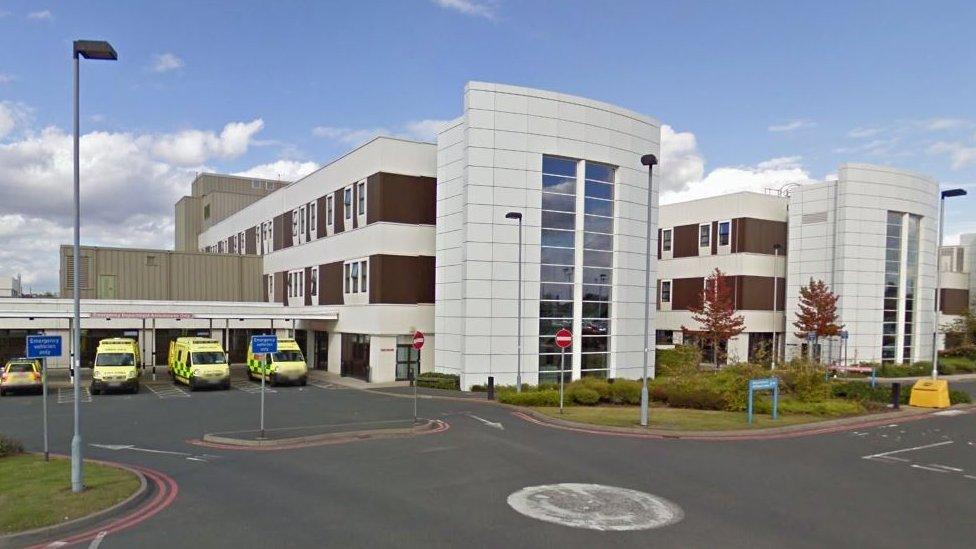
Baby Nicci was delivered by caesarean at Russells Hall Hospital, Dudley
Ms Pierce-Oliver's usual dialysis sessions were doubled during her pregnancy following advice from specialists at Queen Elizabeth Hospital in Birmingham.
Staff in the renal unit at Russells Hall held a baby shower party to celebrate the new arrival.
"It has meant five months of sleepless nights for us because we were all so desperate for everything to go well," said Bobbie Bedford, haemodialysis lead nurse.
The charity Kidney Care UK passed its congratulations to the family and highlighted the rarity of their circumstances.
"The level of the care and treatment the NHS will have given to enable Nicci's birth will be life changing for the family," said Fiona Loud, the charity's policy director.

Why does kidney failure affect fertility?
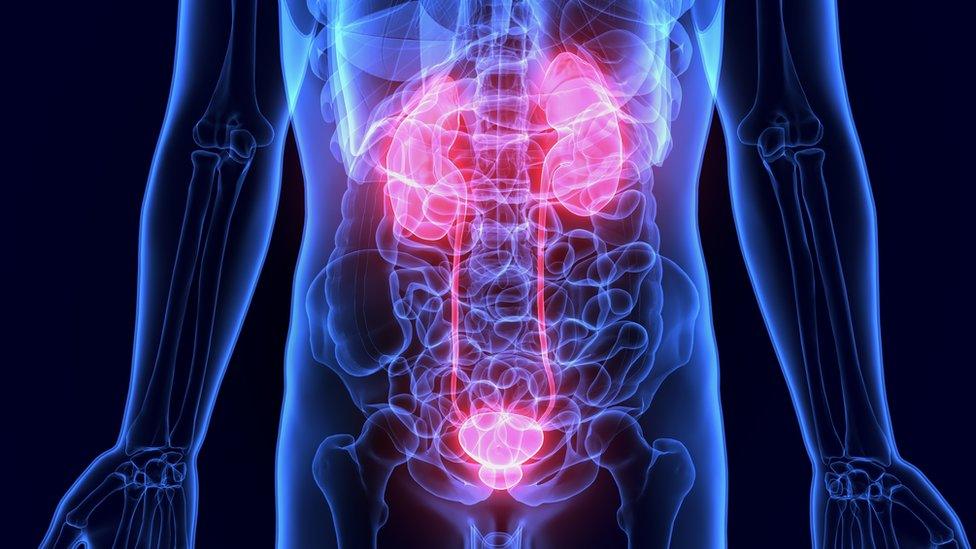
Fertility is likely to be quite low when your kidneys have failed as your body is not able to do all of the things it is normally able to do, said Kidney Care UK
When your kidneys are not working properly they are not able to clear the waste products that build up which can prevent egg production and affect periods
Dialysis gives about 10% of normal kidney function, so if a patient is pregnant, more dialysis is needed to ensure blood pressure doesn't fluctuate too much and the mother's body can support the growing baby
Estimates (from the US) indicate only 2.4% of women on dialysis conceive
Chronic kidney disease increases the risk of pre-eclampsia, a serious illness that usually happens in the second half of pregnancy

Follow BBC West Midlands on Facebook, external, on Twitter, external, and sign up for local news updates direct to your phone, external.
- Published13 July 2019
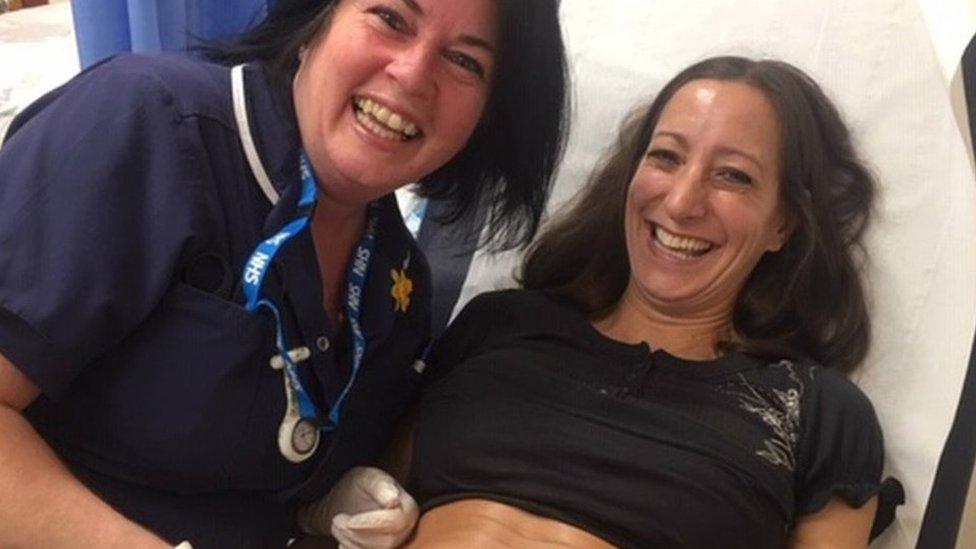
- Published25 January 2018

- Published22 June 2011
